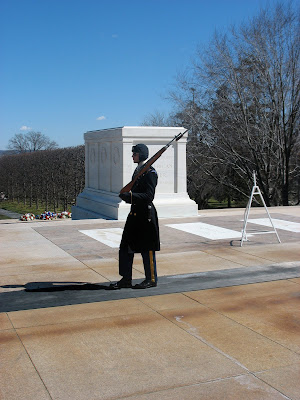
USS Arizona Memorial

American Cemetery, Manila

Marine Corps Monument

Tomb of the Unknown Soldier

U.S. Cemetery, Normandy
Christians have always struggled with how much they should be separate from the wider culture. It’s a crucial balance to strike. It’s tempting to mock those who today or in the past have separated themselves entirely, but often they’ve done so with good reasons, such as a desire to preserve their faith, to keep the secular or pagan culture from destroying it. Of course that’s why God called the Israelites to be separate from the pagan cultures around them. Another good reason has to do with wanting to protect one’s children from harm. Nonetheless, in the last century, Christians on the whole have pulled back too much from the wider culture, retreating when they ought to have advanced, or at the least, held their ground and fought.
If they (the Clapham Circle) had come across as merely odd religious fanatics, their success would have been seriously hurt.... When we hide in a separate Christian subculture, with its own celebrities and music and "literature" and "Paintings of Light," we often lose the ability to communicate effectively with those on the outside.... Within the plastic palisades of Fort Churchianity(TM), we will care little if the world outside perishes.
Paul quoted pagan poets and philosophers to put his points across. He didn’t advocate their worldviews, but he took from them what was valuable, what was universally true, and he used it to point to the one who is Truth.



But we in it shall be remembered--
We few, we happy few, we band of brothers;
For he today that sheds his blood with me
Shall be my brother; be he ne'er so vile,
this day shall gentle his condition;
And gentlemen in England now abed
Shall think themselves accursed they were not here,
And hold their manhoods cheap whiles any speaks
That fought with us upon Saint Crispin's day.
In the mid-1920s, in several parts of the world, a number of brave, skilled young men and women began taking to the air at the controls of a variety of aircraft ...
These were no amateur pilots. They were intensely professional, intensely serious about the craft of flying and about their own role in history....
But most remarkable is how many of them proved to be writers of exceptional grace and vision, authors of more than a score of books.
The airplane offered a spiritual pilgrimage in ways other machines never had. These aviators wrote of being lifted out of themselves by the very act of flight, of becoming part of something infinitely larger than themselves.

"What frightens me more than the war is the world of tomorrow," Saint-Exupery told his mother in late 1940. Central to all he wrote was the theme of responsibility. In The Little Prince, it is the fox, finally, that tells the Little Prince what really matters in life, by reminding him of the flower, the single rose, he had cared for at home on his own small planet. "Men have forgotten the truth," says the fox. "But you must not forget it. You become responsible, forever, for what you have tamed. You are responsible for your rose."